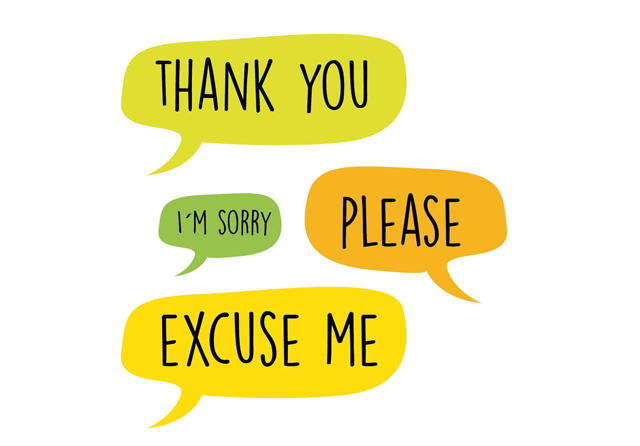“Oh Tigger, where are your manners?” asked Winnie the Pooh. Tigger answered, “I don’t know but I bet they are having more fun than I am!” – from ‘Pooh’s Little Etiquette Book’ by A. A. Milne
While the topic of manners might sound boring and staid, it is actually a very important aspect of your child’s social, emotional and moral development. The ability to work together with others in a group (such as in school or at the dinner table) takes an awareness of basic manners. Knowing when and how to share or how to politely ask for things and assistance is key to your child developing a positive sense of self and the ability to make friends.
Interestingly, studies have shown that some of the most important skills children need to be successful in school are the social interaction skills of sharing, cooperation, and empathy. Your child’s understanding of appropriate manners provides the groundwork for the development of these skills. At the end of Senior KG, your child’s next teacher will expect the children to already know how to be cooperative and courteous with the adults and children in their class. The early years are a good time to focus on manners both at home and away.
The WHY Stage
Developmentally your child is in the “why” stage. She wants to know why it is important to say “please” when you ask for something and “thank you” when you receive it. In the younger years children often will just model your polite language. In this next developmental stages… the interesting task of explaining the “whys” of manners comes into play. You can help by asking your child to notice how it feels when somebody takes something from her without asking and how it feels when someone asks politely. Your child is at a developmental stage where she can understand that if she doesn’t like it when people are impolite to her then others will feel that way too. This skill heralds the start of your child’s ability to use empathy skills that can inform her behavior. You might also explain that people are more likely to be kind and cooperative with her if she is polite with them. This is a harder one to understand but if you point it out when it is happening, your child will begin to make the connection. For example: if you visiting the grandparents with your child and she politely asks for something… help her see how Grandpa positively responds to her. It is always helpful to let the grandparents know ahead of time that you are working on manners. That way they can even exaggerate their demonstration of manners!
Respect Is Essential
Of course, respect is essential to teaching and learning manners. Think about why you are polite. You may notice that it is not only respect for others that inspires you to be polite but also your own sense of self-respect. Helping your child feel confident in herself will help her be comfortable in a variety of group situations when manners are needed. Plus her strong sense of self-confidence will help her be aware of the affect her manners (or lack of) has on others. It is so much easier for your child to be cooperative, kind and polite when she feels relaxed and happy. That is why it is important not to push politeness when your child is upset. Telling her to say “I’m sorry” or “thank you” when she is not really feeling it will not build manners. Wait for a happier time (like a tea party!) to play with the art of manners.
Good Manners Tips:
- Manners are a learned behavior your child develops through observing your polite interactions with her as well as other people. Help your child see that you are polite because you care about her feelings and the feelings of others.
- Children learn through exaggeration. Make a point of exaggerating your good manners and pointing out what you are doing. This will help your child notice the key elements of appropriate behavior.
- On a walk, point out respect for other living things by carefully walking around new plants, and avoiding hurting bugs. Help your young one see how trampling would harm them. This will help your child see how polite and conscious behavior affects all aspects of life.
- Share a pretend tea party in the livingroom. Get all dressed up for the event with hats and feather boas, so that you can practice politely passing the tea and cookies with plenty of “please and thank you’s”. Somehow it is easier to do this in a game than at the dinner table!

